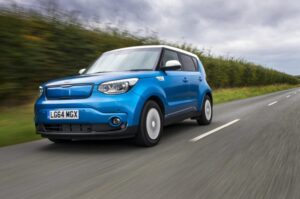Navigating the used car market can feel like stepping into a maze. With so many options and variables at play, finding the right vehicle without overspending is no small feat. As we dive into 2024, understanding the landscape of used car prices becomes even more essential. Whether you’re a first-time buyer or looking to upgrade your current ride, knowing what to expect can save you time and money.
This year presents unique opportunities in the pre-owned vehicle sector. From economic shifts to changing consumer preferences, various factors influence pricing in ways that might surprise you. So buckle up; we’re about to steer through everything you need to know for scoring an unbeatable deal on your next used car!
Factors That Affect Used Car Prices
When it comes to used car prices, several factors play a crucial role. The vehicle’s age is significant; generally, older cars depreciate more rapidly than newer models.
Mileage also matters. A car with lower miles typically commands a higher price due to its perceived reliability and lifespan.
Condition is another key element. Cars that are well-maintained or in excellent shape fetch better deals compared to those showing wear and tear.
Market demand fluctuates as well. Popular makes and models can see inflated prices during high demand periods while less sought-after vehicles may linger on lots at reduced rates.
Geographical location impacts pricing too. Urban areas often have higher costs due to greater demand, whereas rural regions might present more budget-friendly options for savvy shoppers searching for their next ride.
Researching and Comparing Prices
Researching and comparing prices is vital when hunting for a used car. Start by browsing online marketplaces, dealer websites, and classified ads. Collect data on various makes and models to get an accurate picture of the market.
Use filters to narrow down your search based on specific criteria like mileage, year, and price range. This will help you identify patterns in pricing that might not be obvious at first glance.
Don’t forget about local dealerships as well. Sometimes they offer promotions or have vehicles priced competitively just to move inventory.
Consider using price comparison tools available online; these can provide valuable insights into fair pricing within your region.
Always cross-reference information across multiple sources to ensure accuracy—this step is crucial for making informed decisions during your purchase journey.
Negotiating Tips for Buying a Used Car
Negotiating can feel daunting, but it’s your chance to save money. Start by knowing the market value of the car you want. Websites like Kelley Blue Book or Edmunds provide valuable insights.
When you visit a dealership or meet a private seller, keep your initial offer lower than what you’re willing to pay. This gives you room to negotiate upwards while still staying within budget.
Listen carefully during discussions. A good negotiator understands both sides. If the seller insists on their price, ask about repairs or warranties that could tip the balance in your favor.
Stay calm and be patient; don’t rush into an agreement just because you’re eager. Walk away if things aren’t going well—there are plenty of other cars out there waiting for a new home.
Always remember that silence can be powerful in negotiations. Don’t fill every pause with chatter; let them consider your offers without pressure.
Best Time to Buy a Used Car
Timing can make all the difference when buying a used car. Traditionally, the best months to shop for one are late summer and early fall. During this period, dealerships often want to clear out their inventory to make room for new models.
Holidays also present excellent opportunities. Sales events during Memorial Day or Labor Day often lead to better deals as dealers try to hit quarterly targets.
Additionally, shopping at the end of the month can work in your favor. Salespeople may be more willing to negotiate as they strive towards monthly quotas.
Weekdays tend to be less busy than weekends too. Fewer customers mean sales staff might have more time and motivation to offer you a good deal.
Keep an eye on local market trends and seasonal shifts; they play a significant role in pricing dynamics. Stay informed, stay flexible, and you’ll find that perfect used car at just the right price.
Benefits of Buying a Used Car
Buying a used car comes with numerous benefits that can significantly enhance your driving experience. For starters, the cost savings are undeniable. Used cars typically have lower price tags than new ones, allowing you to get more value for your money.
Additionally, used vehicles often come with less depreciation. New cars lose their value quickly within the first few years. By purchasing a pre-owned vehicle, you avoid this steep drop-off and secure better long-term investment potential.
Insurance costs tend to be lower as well for used cars compared to new models. This means you can allocate those extra funds toward maintenance or upgrades.
Moreover, there’s a vast selection available on the market today. You can explore various makes and models that might no longer be in production but still offer great performance and reliability.
Top 10 Most Affordable Used Cars in 2024
Looking for a reliable ride that won’t break the bank? Here are ten affordable used cars to consider in 2024.
The Honda Civic stands out with its impressive fuel efficiency and durability. It’s a top pick for budget-conscious drivers.
Next up, the Toyota Corolla is known for its longevity and low maintenance costs. This compact car is perfect for city dwellers.
The Hyundai Elantra offers modern features at an attractive price. Its stylish design makes it a popular choice among younger buyers.
For those needing more space, check out the Ford Escape. This SUV balances affordability with practicality, making it ideal for families.
Don’t overlook the Nissan Sentra either. With excellent safety ratings and comfort, it’s another solid option on this list.
Each of these vehicles boasts reliability while keeping your wallet happy as you navigate through 2024’s used car market.
Conclusion
Navigating the used car market in 2024 can be both exciting and overwhelming. With a wide variety of options available, understanding pricing dynamics is essential. You’ll want to consider factors like age, mileage, condition, and demand that influence prices.
Researching thoroughly and comparing multiple listings will empower you to make informed decisions. Don’t shy away from negotiating; it’s a crucial part of securing the best deal possible. Timing your purchase effectively can also lead to significant savings.
Buying a used car comes with its own unique set of advantages. From lower depreciation rates to insurance cost benefits, there are plenty of reasons why opting for a pre-owned vehicle makes sense.
Knowing which models offer great value while being budget-friendly helps narrow down your search efficiently. Whether it’s fuel efficiency or reliability you’re after, the right choice awaits you out there in this vibrant marketplace. Happy car hunting!



